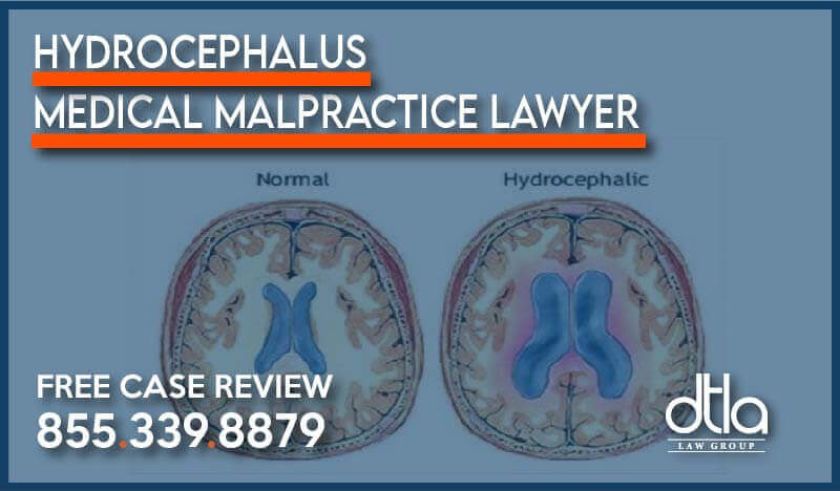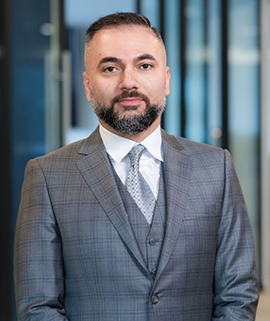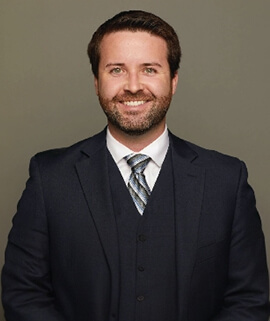Failure to Diagnose Hydrocephalus
Did a doctor fail to diagnose the hydrocephalus that you or a member of your family suffered? If so, you might have grounds to file a medical malpractice claim – especially if the condition worsened because of the failure to diagnose. If you are interested in exploring the possibility of filing a medical malpractice claim for the failure to diagnose hydrocephalus, do not hesitate to contact our experts at Downtown L.A. Law Group at your earliest convenience.
At Downtown L.A. Law Group, our lawyers have many years of experience handling all sorts of claims, including medical malpractice claims. Our lawyers are ready to evaluate your claim and provide you with the guidance that you need to hold the liable parties or entities accountable for the harm that you or a member of your family suffered. If you would like to discuss your claim with our experts, do not hesitate to contact our firm today.
What is Hydrocephalus?
Hydrocephalus is a medical condition in which there is a buildup of cerebrospinal fluid (CSF) in the brain; the buildup of fluid is typically associated with an obstruction that prevents CSF from draining. The buildup of CSF in the brain increases pressure inside the skull and pressure on the brain. In most cases, the buildup of fluid causes the head to grow significantly; brain damage can occur. If left untreated, hydrocephalus can be fatal.
Some of the symptoms associated with hydrocephalus (besides a large head) include some of the following: seizures, headaches, blurred vision, vomiting, walking difficulties, and cognitive problems.
There are many different types of hydrocephalus, including the following:
- Congenital hydrocephalus – a significant number of babies (roughly 1 in every 500) are born with hydrocephalous. The condition can develop because of an infection during the mother’s pregnancy or because of a birth defect. Some symptoms of congenital hydrocephalus include irritability/drowsiness, breathing difficulties, stiff/contracting arm/leg muscles, developmental delays, reluctance to bend/move the neck or head, fontanel bulges out, large head, poor feeding, thin/shiny scalp with visible veins, high-pitched cry, pupils close to bottom of the eyelid, seizures, and vomiting.
- Acquired hydrocephalus – this type of hydrocephalus develops after a stroke, meningitis, a brain tumor, or a serious injury to the head. Some symptoms associated with acquired hydrocephalus include bowel incontinence (although rare), confusion, disorientation, drowsiness, lethargy, irritability (that worsens), headaches, lack of appetite, changes in personality, nausea, vomiting, blurred/double vision, seizures, urinary incontinence, and walking difficulties.
- Communicating hydrocephalus – communicating hydrocephalus occurs when the CSF is blocked after leaving the brain’s ventricles, although CSF can still flow between the ventricles. Some of the symptoms associated with communicating hydrocephalus include headaches, double vision, vision impairments, seizures, and altered mental status.
- Non-communicating hydrocephalus (or obstructive hydrocephalus) – this type of hydrocephalus occurs when the connections between the ventricles in the brain are blocked.
- Normal pressure hydrocephalus – this type of hydrocephalus affects only people who are 50 and older. It develops after a hemorrhage, surgery, infection, injury, or a stroke. Although 375,000 adults over 50 have this condition, its cause is unclear. The symptoms associated with normal pressure hydrocephalus include changes in gait (such as feeling frozen when taking the first step before walking as well as appearing to shuffle instead of walk), a slowed thinking process, and urinary incontinence.
- Hydrocephalus ex-vacuo – this type of hydrocephalus occurs strictly after a stroke, the development of a degenerative disease, or a traumatic brain injury. The brain’s ventricles become larger as brain tissue shrinks.
There are a number of treatment options available. Typically, the treatment varies based on the type of hydrocephalus suffered. For example, both congenital hydrocephalus and acquired hydrocephalus could be treated with a shunt or a ventriculostomy. Normal pressure hydrocephalus, on the other hand, can be treated by a lumbar puncture, a lumbar infusion test, and sometimes a shunt in addition to these treatments.
If caught and treated early, hydrocephalus can have a positive outlook. However, infants who are undiagnosed and go without treatment are most at-risk of developing irreversible harm, especially considering that hydrocephalus could lead to developmental delays.
$200,000
$170,000
$300,000
$420,000
$460,000
$125,000
$600,000
$250,000
Case Reaches a $4.3 Million Settlement
In 2018, a child and her father were awarded a $4.3 million settlement for the failure to diagnose hydrocephalus. According to information surrounding the claim, at least two pediatricians were negligent and failed to diagnose the young girl’s condition. The condition went undiagnosed for five years and caused significant harm.
As early at 9-months old, the young girl was showing alarming signs. Her head grew rapidly, while the rest of her body did not grow at the same rate. She also began showing signs of developmental delays, specifically delays in speech, gross motor, and fine motor activities. Her father shared his concerns with the girl’s pediatrician; however, the pediatrician took no action. By the time the girl was 18-months old, her head size was greater than the 97th percentile and appeared misshapen.
After becoming frustrated with the lack of action of the girl’s pediatrician, the father found a new doctor for a second opinion. The new pediatrician wrongfully assumed that the prior pediatrician had already sent the girl for the necessary tests/scans including a neurological evaluation. Because of this, the new pediatrician took no action; again, the girl’s symptoms were not addressed.
When the child was five, the father self-referred his daughter to an endocrinologist – as he was still concerned both about her large head and her small stature. The endocrinologist sent the girl to get a Brain MRI, which quickly identified the cerebrospinal fluid trapped in her brain; she was immediately diagnosed. Her condition had gone undiagnosed for so long that it was severe – her brain had malformed and was growing into her spine (i.e. a Chari malformation).
The girl immediately had surgery. The surgery was successful in relieving the pressure in her brain. After the surgery, the brain malformation that had developed resolved and her development thrived. The experts that evaluated the girls medical records concluded that the girl’s pediatricians were negligent and exercised malpractice by failing to refer her to a neurologists as well as failing to order brain imaging tests. In addition, they determined that the delay in diagnosis caused developmental delays and brain damage.
As mentioned above, this case reached a $4.3 million settlement. This case is a perfect example of the harm that a failed diagnosis can cause, as well as the recovery that victims can achieve after being rightfully diagnosed and treated. Medical malpractice can change a person’s life forever; fortunately, this young girl eventually received a diagnosis and treatment that likely saved her life.
Medical Professionals have a Duty of Care
Doctors owe their patients a duty of care. Doctors have the duty to treat their patients with a degree of skill, care, and diligence. What does this mean? Because doctors have a duty of care towards their patients, they must take their concerns seriously and run tests when necessary to reach a diagnosis and eventually begin treatment. When doctors ignore the concerns of their patients, fail to take them seriously, fail to run tests, and fail to refer them to the necessary specialists, they are breaching their duty of care and being negligent. If a patient is harmed in any way, the doctor could be liable.
However, the doctor is not the only one who could be liable. Based on vicarious liability, the hospital or medical center that employs the doctor could also be held liable. These entities have the duty to ensure that their doctors and entire staff are competent; therefore, by allowing an incompetent doctor to keep seeing patients, the hospital or other employer could be held liable. Likewise, in cases where nurses or assistants are negligent, liability can be transferred to the doctor (since the nurses or assistants were following doctor’s orders) and then to the hospital, for example.
Understanding Medical Malpractice and the Failure to Diagnose
What is medical malpractice? Medical malpractice occurs when a doctor (and other medical staff) negligently causes harm to a patient. Some of the most common instances of negligence relevant to medical malpractice include issues with diagnosis, treatment, and aftercare, for example.
Medical malpractice consists of many different categories – one of which is the failure to diagnose. This happens when medical professionals fail to rightfully diagnose their patients. They might fail take patients’ concerns seriously, fail to order the appropriate tests, and fail to refer patients to specialists, for example. The failure to diagnose can lead to the condition worsening, progressing too far to benefit from treatment and even possibly causing death. Without a doubt, the failure to diagnose could result in significant harm.
You Could Sue
As mentioned above, medical professionals owe their patients a duty of care. If they act negligently and fail to diagnose a condition, these so-called medical professionals could be held accountable for all the harm suffered. If you or a member of your family suffered any sort of harm after a doctor failed to diagnose a condition, you should seek legal assistance immediately. Depending on the circumstances surrounding your claim, you might have grounds to sue. You might even have grounds to recover some sort of monetary compensation.
You Could Recover Compensation
If your medical malpractice claim reaches a successful outcome, you and your family might be eligible to recover monetary compensation. Depending on the details surrounding your medical malpractice claim, you could recover compensation for some of the following:
- Medical bills
- Lost earnings
- Pain and suffering
- Punitive damages
For more information on the specific type and amount of compensation that you could be eligible to receive, do not hesitate to contact our firm today. You should be aware that California places caps (limits) on the compensation that claimants could recover for non-economic damages, such as pain and suffering. If you would like to learn more, do not hesitate to contact our firm today – our medical malpractice lawyers are ready to aggressively fight for your right to be compensated.
Your Claim is Subject to a Deadline
Without a doubt, you might have grounds to sue if you or a member of your family was the victim of medical malpractice. However, you could lose your right to take any sort of legal action if you fail to file your claim within the appropriate amount of time. How long do you have to file your claim?
All claims are subject to a statute of limitations, which determines the specific length of time that claimants have to sue. If claimants fail to file within the time established by the statute of limitations, they could lose their right to sue. What deadline applies to your medical malpractice claim? In California, medical malpractice claims are subject to a deadline of either three years after the date of injury or one year after the claimant discovers (or should have discovered) the injury.
To ensure that you have a thorough understanding on the statute of limitations that applies to your claim, do not hesitate to seek legal assistance with the experts at our law firm at your earliest convenience. Our lawyers are ready to evaluate your claim and help you understand the time that you have to sue.
What Should You Do?
If you suspect that you or a member of your family has been a victim of medical malpractice, it is important that you take immediate action. What should you do? First and foremost, seek multiple medical opinions. In some cases, a second opinion is enough; however, be open to third, fourth, and even fifth opinions. Do not rest until a medical professional takes your concerns seriously. You should also collect all medical records – all records relevant to the doctors that were seen as well as their inaction. These records should include the diagnosis that was eventually reached. You should then seek legal assistance with a medical malpractice lawyer. For more information about what you should do if you suspect that you or a member of your family have been affected by medical malpractice, do not hesitate to contact our law firm today.
Contact Downtown L.A. Law Group Today
Downtown L.A. Law Group is a personal injury law firm with many years of experience handling all sorts of claims, including medical malpractice claims. Unfortunately, the medical professional that we trust so much are often the ones that directly contribute to the harm that we suffer. If you believe that you or a member of your family was a victim of medical malpractice, do not hesitate to seek legal assistance with the experts at our law firm at your earliest convenience. The experienced lawyers at our firm are ready to evaluate your claim and provide you with the guidance that you need to take action against the doctor or hospital that negligently harmed you or a member of your family.
If you would like to explore the possibility of filing a medical malpractice claim, do not hesitate to seek legal assistance with the experts at our law firm at your earliest convenience. At our firm, we are committed to remaining accessible to all affected parties. Because of that, we offer free legal services, which include free consultations and free second opinions. During our free consultations and free second opinions, our lawyers will be available to answer all your questions, address all your concerns, and provide you with the guidance necessary to pursue your medical malpractice claim. Whether you are interested in starting or continuing your claim, you can be certain that our experts will provide you the legal assistance that you need to pursue your claim.
Our firm offers a Zero-Fee guarantee that ensures that our clients never have to worry about paying upfront legal fees for any of our legal expenses. This is important because far too many people decide not to take any legal action because they are worried about having to pay expensive legal fees. Our law firm is also strictly based on a contingency structure; therefore, our clients will not be required to pay anything until after reaching a successful claim outcome. If they do not win, they will not be required to pay anything.
Are you ready to discuss your medical malpractice claim with the experts at our law firm? If so, do not hesitate to contact our law firm today.
Other Pages on Our Website Related to This Topic
Podiatrist Malpractice Attorney
Obstetric Malpractice Attorney
HMO Kaiser Lawsuit Attorney
Personal Injury
– Santa Clarita Personal Injury Lawyers
– Santa Barbara Personal Injury Attorneys
– Santa Maria Personal Injury Attorneys
– Redondo Beach Personal Injury Attorneys
– Rialto Personal Injury Attorneys
– San Marcos personal injury attorneys
– Rancho Cucamonga Personal Injury Lawyers
– Pomona Personal Injury Attorneys
– Redlands Personal Injury Lawyers
– Ontario personal injury lawyers
– Lake Elsinore Personal Injury Attorneys
– La Habra Personal Injury Lawyers
– Lakewood Personal Injury Lawyers
– Indio personal injury lawyers
– Irvine personal injury attorneys
– Glendale personal injury attorneys
– Highland personal injury attorneys
– Huntington Park personal injury lawyers
– Corona personal injury lawyers
– El Cajon personal injury attorneys
– Costa Mesa personal injury attorneys
– Compton personal injury lawyers
– Chino Personal Injury Attorneys
– Chula Vista Personal Injury Attorneys
– Baldwin Park Personal Injury Attorneys
– Bellflower Personal Injury Lawyers
– Anaheim personal injury lawyers
– Prisoner Personal Injury Attorney











